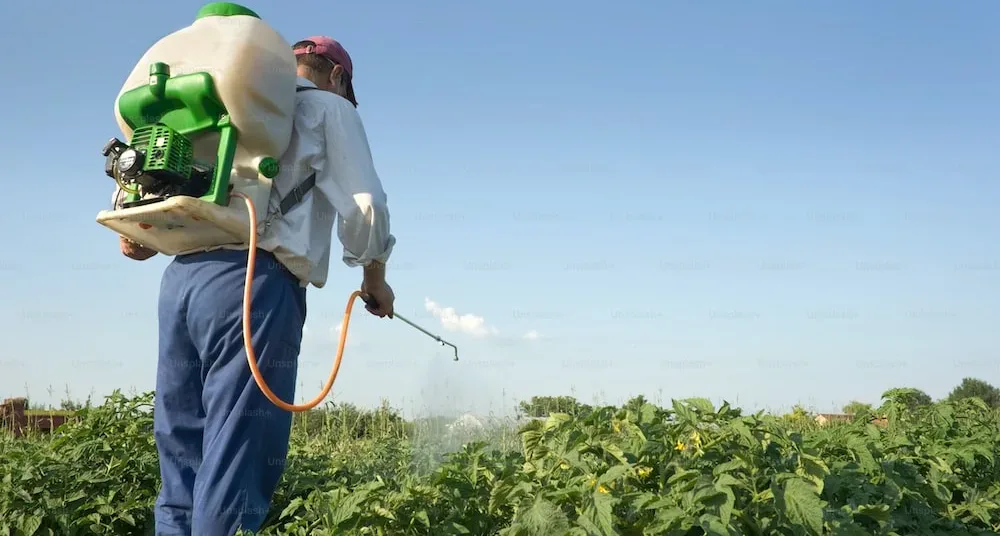The Future of Agriculture: Harnessing Biological Crop Protection

In an era marked by increasing concerns over environmental sustainability and food security, the agricultural industry faces the urgent challenge of finding innovative and sustainable solutions to protect crops from pests and diseases.
While conventional chemical pesticides have helped to protect harvests, substantial concerns have been raised about their detrimental effects on ecosystems and human health.
Thus, a possible substitute in the form of biological crop protection has appeared. This cutting-edge strategy offers a more sustainable and environmentally friendly way to protect agricultural productivity by utilizing the strength of nature’s defense systems.
In this article, we’re going to into the fascinating possibilities of biological crop protection and examine how it stands to transform the field of agriculture in the future.
Understanding the Need for Sustainable Crop Protection
Sustainable crop protection has become crucial in today’s world. The need for food production increases exponentially along with the growth of the world’s population.
Traditional crop protection techniques, which mostly depend on chemical pesticides, are bad for the environment, human health, and biodiversity. Pesticide-resistant pests have emerged as a result of the overuse of pesticides, which has also caused water bodies to become contaminated, beneficial insect populations to decline, and water bodies to become contaminated.
Additionally, customers are becoming more and more concerned about the possible health dangers linked to pesticide residues in food. Therefore, a move to sustainable crop protection techniques is urgently required to guarantee long-term agricultural productivity without endangering the well-being of ecosystems, farmers, and consumers.
Here, the idea of biological crop safety comes into play, providing a workable and environmentally beneficial substitute that makes use of nature’s protective forces to protect crops. We can make agriculture more dependable and secure by comprehending the necessity of sustainable crop protection.
The Rise of Biological Crop Protection
The biological crop has seen a remarkable increase in popularity as a practical strategy for sustainable agriculture in recent years. Farmers and researchers alike are focusing on utilizing nature’s defense systems as the drawbacks and side effects of conventional chemical pesticides become more and more obvious.
Utilizing beneficial creatures like predators, parasitoids, and beneficial microorganisms to control pests and illnesses is known as biological crop protection.
In comparison to chemical pesticides, these natural friends have several benefits, such as fewer negative environmental effects, increased consumer and farm worker safety, and long-term effectiveness by lowering the likelihood of resistance development.
A fundamental change in the agricultural sector is being brought about by the growth of biological crops, which emphasizes the value of ecological harmony and the potential for peaceful coexistence between crops and the natural world.
The increased acceptance and use of biological crop techniques are poised to revolutionize agriculture in the future because of ongoing research and technological breakthroughs.
Exploring Nature’s Defenses: How Biological Control Works
A key component of biological crop security is biological control, which draws on the built-in defense mechanisms present in nature to protect crops from pests and diseases. Utilizing helpful creatures that naturally feast on or parasitize pests is the idea’s central idea for managing their populations.
These creatures may be parasitic wasps that lay their eggs in nuisance insects, predators like ladybugs or lacewings, or even helpful bacteria that control infections that cause disease.
A delicate balance where pests are controlled without the need for synthetic chemical interventions can be established by introducing these natural enemies into agricultural systems. The advantageous creatures consume pests, interfere with their life cycles, or release biochemical substances that prevent pests from growing.
In addition to providing efficient pest management, this strategy also promotes natural harmony and lessens the need for dangerous chemical inputs. A sustainable and environmentally friendly answer to crop protection issues is to investigate nature’s defenses through biological control, which results in healthier crops and ecosystems.
Beneficial Organisms
In the field of biological crops, helpful organisms are important. These organisms are the partners of nature, working assiduously to control illnesses and pests.
They occur in a variety of shapes and sizes, including predators, parasitoids, and microorganisms, and each has special qualities that make it advantageous for agricultural systems to include them.
Predators like ladybugs, lacewings, and spiders eat nuisance insects, which naturally lowers their populations. As the parasitoid larvae grow, parasitoids like some wasps and flies that lay their eggs in or on problem insects kill the host. Beneficial microorganisms, such as bacteria and fungi, help prevent disease by out-competing pathogens in the soil or on plant surfaces and suppressing them.
These advantageous organisms have the advantage of being self-sustaining and adaptive to changing environmental conditions in addition to being efficient in controlling pests and diseases.
Their presence in the ecosystem fosters biodiversity and resilience, improving the agricultural environment and making it more enduring. Utilizing the potential of biological crop protection requires embracing and promoting beneficial organisms.
Embracing the Future: Strategies for Adopting Biological Crop Safety
To successfully adopt and integrate biological crop protection methods into agriculture, several key strategies can be employed:
Education and Awareness
- Conduct education and awareness campaigns to inform farmers, agronomists, and stakeholders about the benefits and implementation of biological crop safety.
- Provide training and technical support to empower farmers with the knowledge and skills to effectively utilize beneficial organisms.
Collaboration
- Foster collaboration between researchers, industry experts, and farmers to develop region-specific biological control programs tailored to local farming conditions.
- Establish platforms for knowledge sharing and exchange of best practices in biological crops.
Incentives and Support
- Provide financial support, policy incentives, and certification programs to incentivize the adoption of biological crops.
- Create grants and subsidies for farmers transitioning to sustainable and eco-friendly farming practices.
Integrated Pest Management (IPM)
- Implement Integrated Pest Management approaches that combine multiple crop protection methods, including biological control, for holistic pest management.
- Conduct regular monitoring and assessment of pest populations to determine the appropriate timing and dosage of biological control interventions.
Research and Innovation
- Invest in research and development to improve the efficacy and scalability of biological crop protection methods.
- Explore the use of new technologies, such as molecular tools and precision farming, to enhance the effectiveness of biological control.
By embracing these strategies and fostering a collaborative and supportive environment, the agricultural industry can successfully adopt and integrate biological crop safety, paving the way for a more sustainable and environmentally friendly future of farming.


